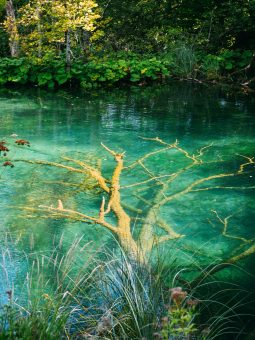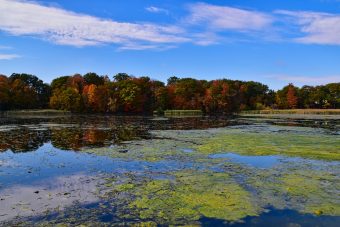
World Wetlands Day is observed on February 2, marking the anniversary of the Ramsar Convention on Wetlands, signed in 1971. Every year on this day, the importance of these ecosystems is highlighted. Although wetlands cover just over 6 percent of the Earth’s land surface, they provide a habitat for 40 percent of all plant and animal species.
Wetlands are among the most efficient natural carbon storage systems. In low-oxygen conditions, plants in wetlands absorb CO₂ through photosynthesis but decompose slowly, trapping carbon in the soil. However, climate change (droughts, floods) can disrupt this process by drying out wetlands and releasing large amounts of CO₂ into the atmosphere.
Wetlands are often mistakenly perceived as barren and useless land, yet they play a crucial role: they absorb excess water during heavy rainfall, reducing the risk of floods, while gradually releasing water during dry periods. They filter and purify water, provide shelter for rare and endangered species of plants, birds, and fish, and prevent soil erosion by stabilizing shorelines and reducing land runoff.
More:
- European Commission Invests 2.4 Billion Euros in Green Technologies
- EU Updates Environmental Standards for Forges and Foundries
- The Baltic Sea in Peril – Rising Bacteria and Declining Oxygen Levels Alarm Scientists

However, wetlands are the most endangered ecosystems on Earth—since 1970, 35 percent of wetland areas have been lost, while some estimates indicate that more than one-third of the world’s wetlands have disappeared in the past 50 years. The causes are numerous: agricultural expansion, urbanization, pollution, climate change, and uncontrolled exploitation of natural resources. More than a billion people—approximately one in eight worldwide—directly depend on wetlands for agriculture, fishing, or tourism, meaning their disappearance threatens livelihoods as well.
Wetlands are found on every continent except Antarctica and, although they cover a small portion of the Earth’s surface, they play a vital role in climate stability, biodiversity, and human well-being. The latest data on their accelerated loss highlight the urgent need for their conservation and restoration. With better education, stricter protection measures, and increased awareness, wetlands can continue to protect us, provide food, and support sustainable development.
Energy portal





